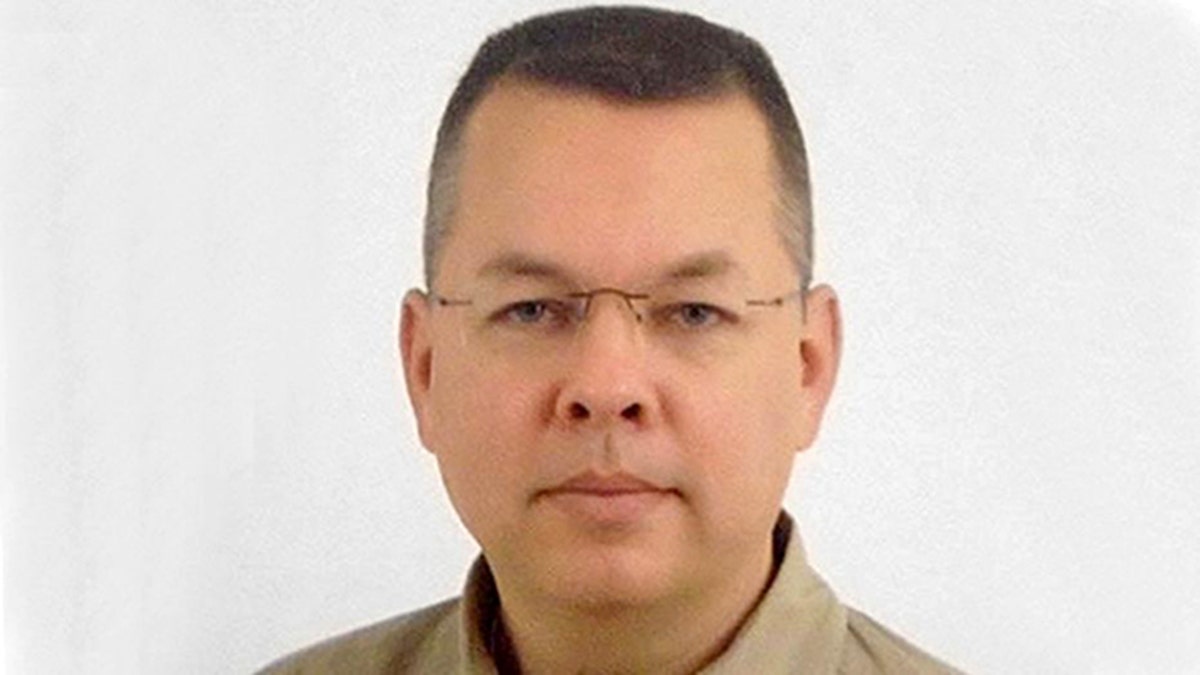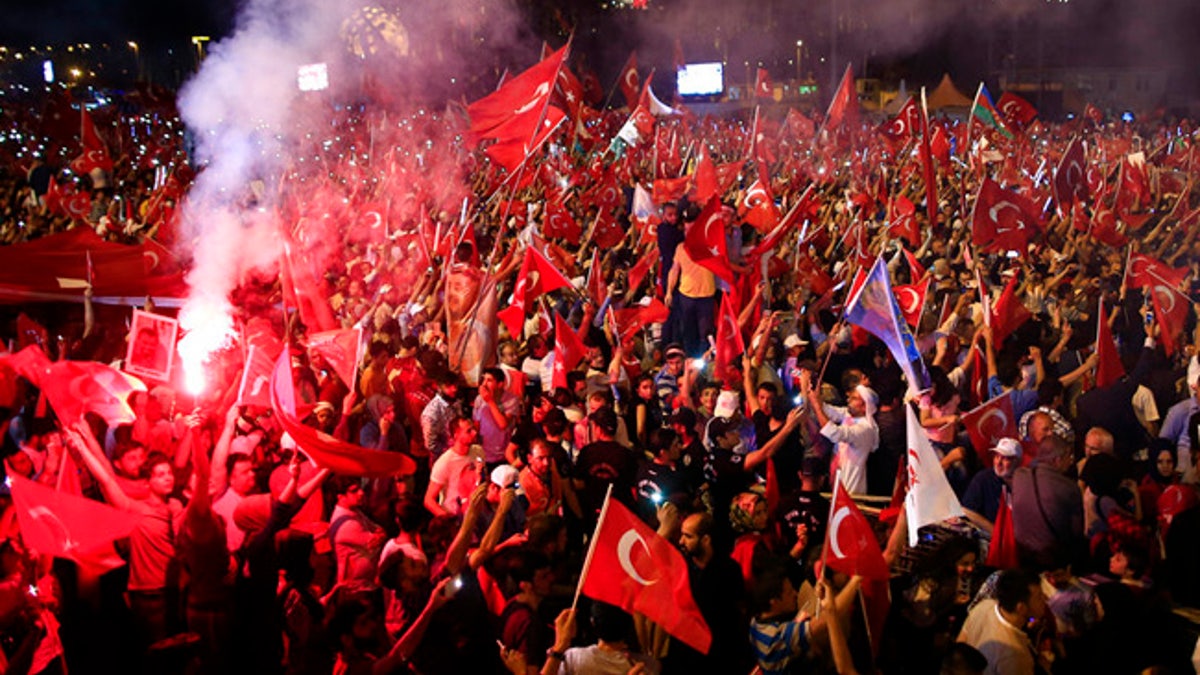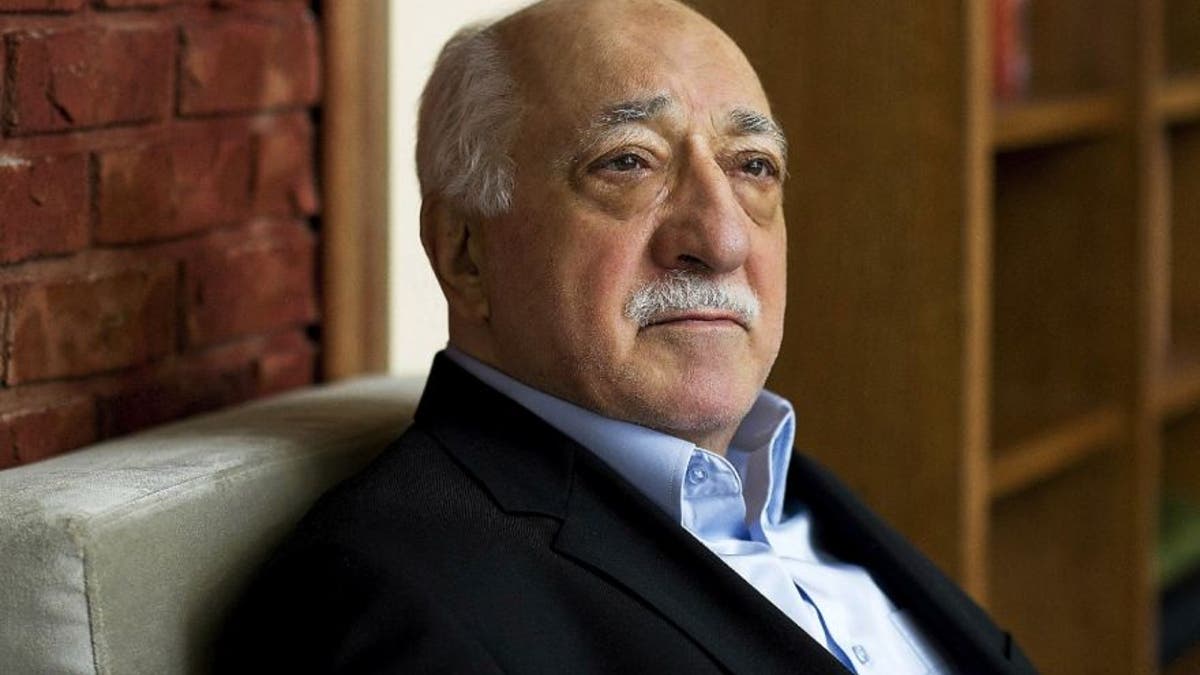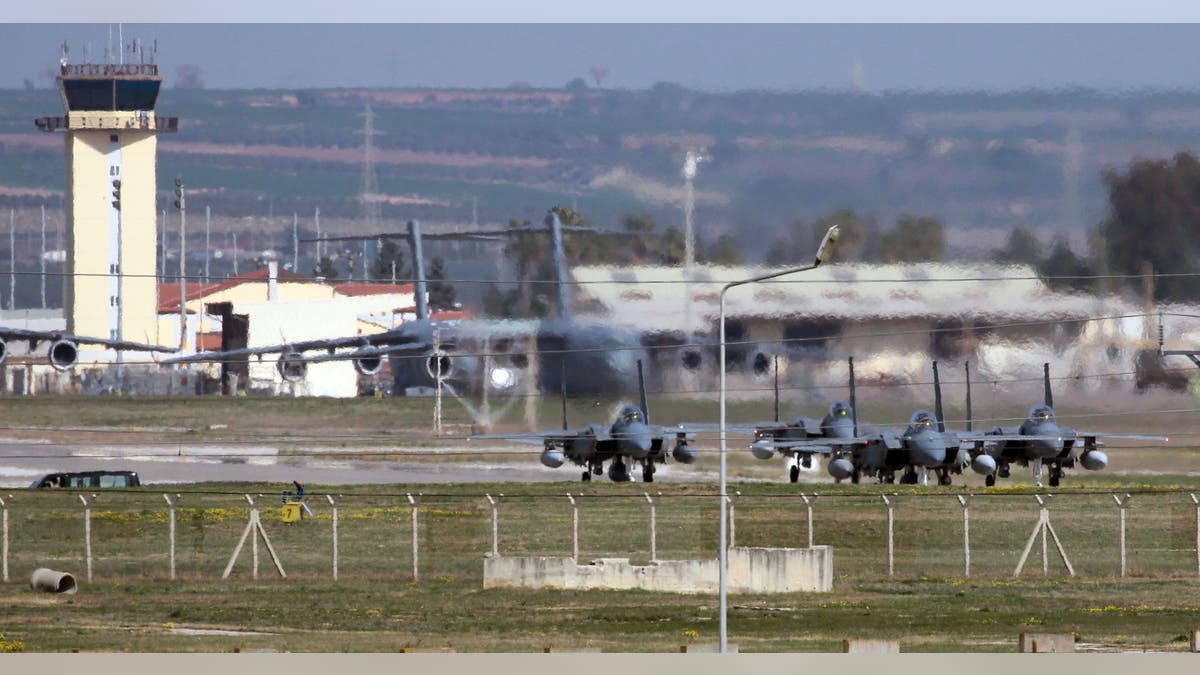Inside the diplomatic flare up between US, Turkey
The State Department stopped considering visa applications from Turkish citizens and Turkey retaliated by announcing the same for Americans traveling to Turkey; Rich Edson explains on 'Special Report.'
A Wall Street Journal reporter’s sentencing by a Turkish court this week, to two years behind bars by “spreading terrorist propaganda,” marks the latest in the government’s escalating hostility not only with the press, but with any figure tied to the West. Ayla Albayrak — a dual Finnish-Turkish citizen — was tried in absentia, and thus won’t have to join the prison ranks unless she returns, but dozens of other western professionals aren’t so fortunate.
Serkan Gölge, a 37-year-old NASA scientist of Turkish descent, who was vacationing with family in the quiet southern town of Hatay recently was arrested by the government, as was Turkey-based American pastor Andrew Brunson, who had been residing in Turkey without incident for more than 20 years.

Pastor Andrew Brunson has been imprisoned in Turkey (American Center for Law and Justice)
Furthermore, Ismail Kul, a chemistry professor at Widener University in Pennsylvania and his real estate agent brother, Mustafa Kul, were apprehended in August last year while on summer vacation in Bursa.
Then last week, Turkish authorities arrested U.S. consulate employee Metin Topuz on terrorism charges and this week, they announced that they were seeking a second unnamed U.S. consulate worker. In February, fellow consulate employee Hamza Uluçay too was abruptly detained.
These are just a few of the many western-linked — most of whom hold dual citizenship in Turkey — who have been swept up in President Tayyip Erdoğan’s ongoing purge in the wake of the July 2016 failed coup attempt to remove him from power. The common thread with all who are being incarcerated? Suspected ties — however indirect, vague or unproven — to Fethullah Gülen, the Pennsylvania-based Islamic cleric who Erdogan accuses of orchestrating the coup despite his vehement denials, or to The Kurdistan Workers’ Party or PKK. The Kurdish militant group is closely associated to The Women’s Protection Units or YPJ, who the U.S. is training and funding to fight ISIS in Syria.

Crowd cheer as Turkey's President Recep Tayyip Erdogan speaks at the July 15 Martyr's bridge on a "National Unity March" to commemorate the one year anniversary of the July 15, 2016 botched coup attempt, in Istanbul, Saturday, July 15, 2017. Turkey commemorates the first anniversary of the July 15 failed military attempt to overthrow president Erdogan, with a series of events honoring some 250 people, who were killed across Turkey while trying to oppose coup-plotters. (AP Photo/Lefteris Pitarakis) (Copyright 2017 The Associated Press. All rights reserved.)
But any ties are considered terrorist ties and diplomatic tensions between Turkey and the United States seemingly have been escalating since the failed coup attempt and since the U.S. upped its support of People’s Protection Units or YPG in closing in on the ISIS-controlled Raqqa over a year ago. And those tensions hit a high this week, with governments in both countries precipitously suspending nonimmigrant visas for each other’s citizens.
Some experts anticipate that things are likely to only get worse, and more westerners will be jailed or targeted inside the country as collateral damage, if the U.S. does not cave to pressure and agree to Gülen.

Turkish Islamic preacher Fethullah Gulen, pictured at his residence in Saylorsburg, Pa., is charged in Turkey with plotting to overthrow the government. (Associated Press)
“Bilateral relations with Turkey are deteriorating because President Erdoğan seeks to use the U.S. as a scapegoat to advance his political agenda and maximize his own political power,” Jim Phillips, senior research fellow for Middle Eastern Affairs at the Heritage Foundation, told Fox News. “Erdoğan has ordered arrests on trumped-up charges to take hostages that he hopes to exchange for Gülen.”
PROTESTERS VIOLENTLY EJECTED FROM ERDOGAN SPEECH IN NYC
But Gülen perhaps isn’t the only bargaining chip in the Turkish government’s mind. Last month, federal prosecutors in New York filed new indictment charges against a former Turkish economy minister, Mehmet Zafer Çağlayan, and three other Turks for conspiring to violate the U.S.’s sanctions against Iran. In addition to Çağlayan, at least one of the other defendants, a gold trader named Reza Zarrab, is reported to be closely connected to the president and his inner circle.
Erdoğan has raised the issue of Zarrab’s arrest in the past, claiming that there are “malicious” intensions behind the U.S. nabbing him. However, Kamran Bokhari, senior analyst at Geopolitical Futures, contends that it is unlikely these people are being used as pawn for extradition, as the Turks have learned this simply won’t work.
“The arrests seem more like ways to improve domestic standing. Erdoğan is likely trying to show his constituency that he can be tough with the United States,” he said.
ISIS, PRIVATE MILITIAS THREATEN LIBYAN RECOVERY, SAYS FORMER PRIME MINISTER
Moreover, there are additional concerns that the strain between the two countries could spill over into the military realm, impacting the NATO allegiance. As highlighted in a 2016 report by the Institute for the Study of War (ISW), the aftermath of last year’s coup attempt brought about a fast restructuring of the county’s military and many of those designated to the NATO command were the ones to be ousted while commanders who stuck by the President were elevated into top roles.
“Erdoğan has eliminated numerous Turkish generals serving in positions for NATO, demonstrating a newfound defiance. Erdoğan’s disruption of NATO simply could be an extension of his aggressive purge.
Alternatively, he could be setting conditions to break with NATO by drawing back Turkey’s role,” the report stated. “Erdoğan is reshaping Turkey’s foreign policy away from U.S. interests as he carries out his purge. Erdoğan meanwhile is pursuing a closer partnership with Russia, and have revived talks over the Turkish Stream or TurkStream deal which would expand Russia’s access to the European gas market.”
Relations between Turkey and Russia subsequently have gained momentum. Last month, accords were signed between the previously coldly related countries and a deposit paid by Ankara for the acquisition of the S-400 surface-to-air missile defense systems from Moscow.
“This creates a major mistrust in the Atlantic alliance. Turkey and the West share common ideals and principles and must continue to tackle regional and global challenges together,” said Cenk Sidar, president of security technology firm, Sidar Global Ventures. “Every day Turkey is going backwards regarding democracy, the rule of law and human rights. This inevitably isolates Turkey from the West where Turkey always wanted to be a part of.”
Questions are also percolating through Turkish media outlets that the country could close the Incirlik Air Base for the U.S. Air Force over the suspended issuance of nonimmigrant visas, and pro-government citizens have embarked on their own social media movement demanding that U.S. troops be expelled.

Incirlik Airbase
However, a Department of Defense spokesperson assured that there has been no impact to their operations and personnel, and that the airbase continues to “fulfill an important role supporting NATO and Coalition efforts.”
A NATO official too echoed that sentiment, telling Fox News that military relations have been “unaffected by diplomatic tensions between the two countries.”
Furthermore, Turkish officials this week have expressed a desire to quickly end the visa rift and restore relations — but the future of the two long-held allies, and the Americans and other westerners languishing behind bars, remains uncertain.
“The situation is unlikely to improve anytime soon,” Bokhari added. “This is because of the core geopolitical disagreements in terms of how the Middle East should be managed as well as the weakening of the European Union.”
The Turkish Embassy in Washington D.C. did not respond to a request for comment.





















